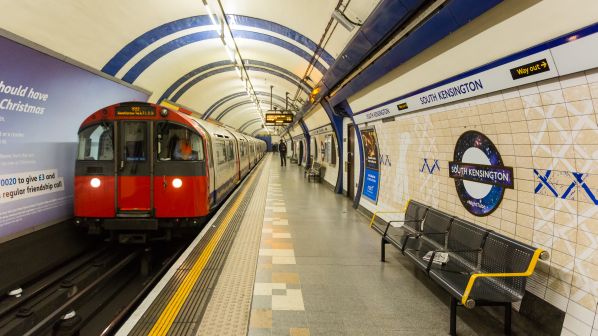Despite this, TfL says there is a need for long-term certainty around investment in existing and new transport assets to ensure that services support the growing city. TfL says its finances continue to be subject to substantial pressures as a result of the average £700m a year reduction in government funding for its day-to-day operations.
While passenger numbers on public transport are slightly higher overall compared with last year, there has been a notable softening in demand in recent weeks. TfL says this could be linked to wider economic uncertainty, which affects long-term passenger trends and commercial income meaning that revenue forecasts must remain cautious across the plan period.
The announcement from Crossrail on November 8 that the opening of the central section of the Elizabeth Line will not occur in 2020 has also created significant additional capital investment and revenue pressures.
TfL will have to absorb between £500m and £750m in lost revenue, in addition to the £600m in losses highlighted in last year’s plan. The shortfall is spread across the next four financial years, and will be managed through further savings and by encouraging more people to use public transport.
TfL has reduced the net annual operating cost by more than £1bn since 2015-16, and pressed ahead with a range of improvements. These include the introduction of the Ultra Low Emission Zone (ULEZ) in central London, the extension of peak-hour services on the Victoria Line and increased frequencies on some London Overground lines. These are contributing to a forecast operating income of almost £6bn in 2019-20, with passenger numbers expected to reach a record 4.37 billion journeys a year by the end of the plan period.
The expected operating surplus means TfL will be able to cover the cost of financing, maintaining, operating and renewing the network, which will help to manage debt and reduce borrowing levels. Throughout the plan period, significant investment will continue to provide better, more frequent and accessible transport options.
These include:
- completing the signalling upgrade and increasing capacity by 33% on the Circle, Hammersmith & City, Metropolitan and District lines, delivering refurbished trains on the Central line and new trains on the Piccadilly line. TfL will also continue to make the case for a replacement programme for the life-expired signalling system on the Piccadilly Line, which was paused last year owing to a lack of certainty around government funding
- reducing TfL’s environmental impact through the installation of solar panels on selected London Underground, DLR and tram depots to deliver more than 1.1MW of power, and the continued retrofitting of energy-efficient LEDs across the network. TfL will also increase the amount of low-carbon energy from renewable energy sources with the of delivering carbon-free rail services by 2030
- maintaining and upgrading existing core assets across the transport network to provide safe and reliable journeys, including replacing rails and maintaining lifts and escalators. New walk-through trains will be delivered for the Dockland Light Rail, increasing capacity and providing more frequent, direct services
- supporting Crossrail Limited to deliver the remaining and complex technical work necessary to allow the Elizabeth Line to open. TfL Rail will begin running services from Paddington to Reading on December 15, with direct services between Paddington and Heathrow beginning in spring 2020. The central section of the Elizabeth Line will undergo extensive trial running and testing in 2020 to ensure that it is safe and reliable and will open as soon as practically possible in 2021, and
- introducing new services on the Northern Line extension to Battersea and the Barking Riverside extension on the London Overground.
TfL will also push for the development of new infrastructure to support the growth of London and support the wider southeast region and Briton overall, such as Crossrail 2 and the Bakerloo Line extension.
“Alongside our continuing modernisation of the Tube, TfL fares will be frozen again this January, and we continue to take some of the boldest action of any city in the world greening up our transport network and improving air quality across the capital,” says mayor of London, Mr Sadiq Khan.
The draft plan will be considered by TfL’s finance committee on December 18, alongside the mayor’s transport strategy.

